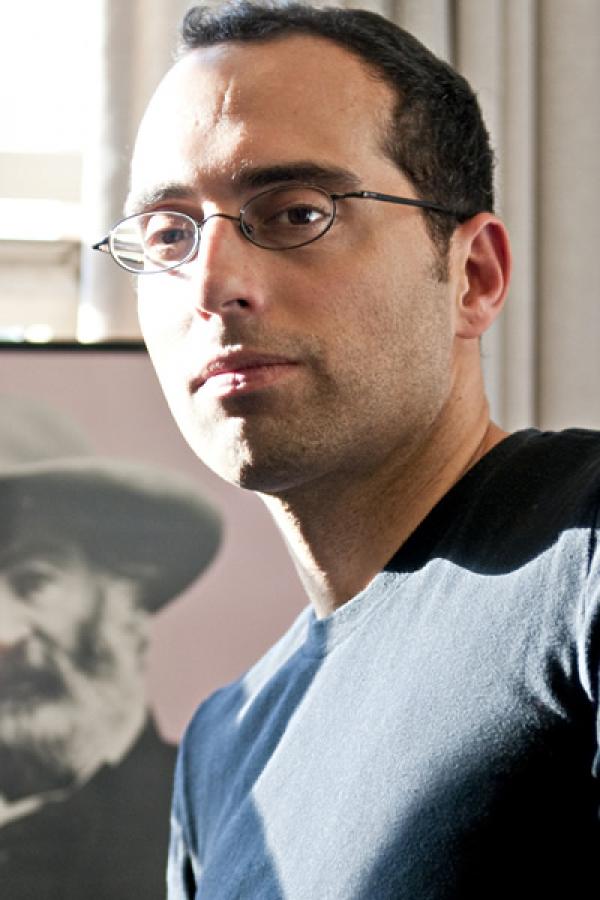Philip Metres

Photo by Robert Muller
Bio
Philip Metres has written a number of books and chapbooks, including A Concordance of Leaves (Diode, 2013), abu ghraib arias (Flying Guillotine, 2011), which was the winner of the 2012 Arab American Book Award, To See the Earth (Cleveland State, 2008), and Behind the Lines: War Resistance Poetry on the American Homefront since 1941 (University of Iowa, 2007). His work has appeared in Best American Poetry, and Inclined to Speak: Contemporary Arab American Poetry, and has garnered two NEA fellowships, the Thomas J. Watson Fellowship, four Ohio Arts Council Grants, the Anne Halley Prize, the Arab American Book Award, and the Cleveland Arts Prize. He teaches literature and creative writing at John Carroll University in Cleveland, Ohio. Were it not for Ellis Island, his last name would be Abourjaili. See www.philipmetres.com and behindthelinespoetry.blogspot.com for more information.
Author's Statement
So much of our writing lives is scratching with a poor spoon in a dark hole dug out of a prison wall, trying to tunnel to the outside. Every day, we're lucky to produce just a bit of dust and a bit more of the way out. Receiving the NEA fellowship is roughly the equivalent to your fellow prisoner loaning you his shovel. With this recognition, the writing does not get easier, but I have the keen sense that I'm not alone, and that someone might be waiting for me on the other side, listening for the sounds of the scratching coming closer.
This fellowship has spurred on revisions to A Concordance of Leaves (shortly forthcoming), and Sand Opera, a collection of poems that sets in counterpoint the experience of becoming a father on the home front and the War on Terror abroad, and meditates on what it means to celebrate the body, raise children, and write poetry in a terrifying world of war and violence. I take Herodotus as guide: "I Herodotus of Halicarnassus here set down what the Greeks and Persians did so as to prevent these deeds from drifting into oblivion."
Sand Opera began out of the vertiginous sense of being named but unheard as an Arab American, and out of the parallel sense of seeing Arabs named and silenced, since 9/11.
In the post-9/11 world, many Americans have turned with a particularly keen ear toward the voices of Arabs, even though it has often been a fearful and selective listening. Even the great Errol Morris, for Standard Operating Procedure, chose to interview only Americans for his film on Abu Ghraib! I have tried to gather voices in the United States and in the Middle East--voices that embody our common humanity and the dehumanizing perils of war.
Compline
That we await a blessed hope, & that we will be struck
With great fear, like a baby taken into the night, that every boot,
Every improvised explosive, Talon & Hornet, Molotov
& rubber-coated bullet, every unexploded cluster bomblet,
Every Kevlar & suicide vest & unpiloted drone raining fire
On wedding parties will be burned as fuel in the dark season.
That we will learn the awful hunger of God, the nerve-fraying
Cry of God, the curdy vomit of God, the soiled swaddle of God,
The constant wakefulness of God, alongside the sweet scalp
Of God, the contented murmur of God, the limb-twitched dream-
Reaching of God. We're dizzy in every departure, limb-lost.
We cannot sleep in the wake of God, & God will not sleep
The infant dream for long. We lift the blinds, look out into ink
For light. My God, my God, open the spine binding our sight.
(first appeared in POETRY Magazine)

